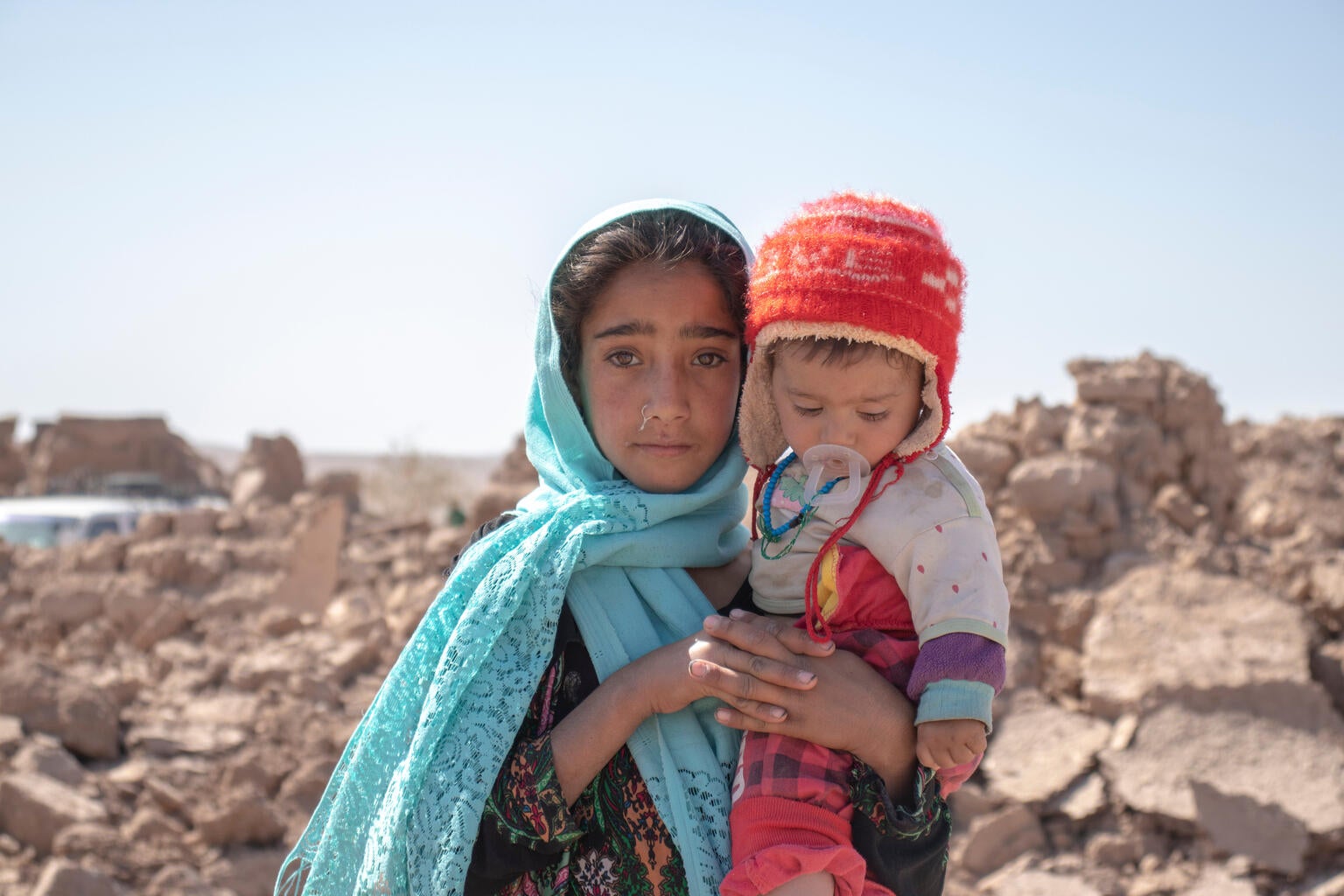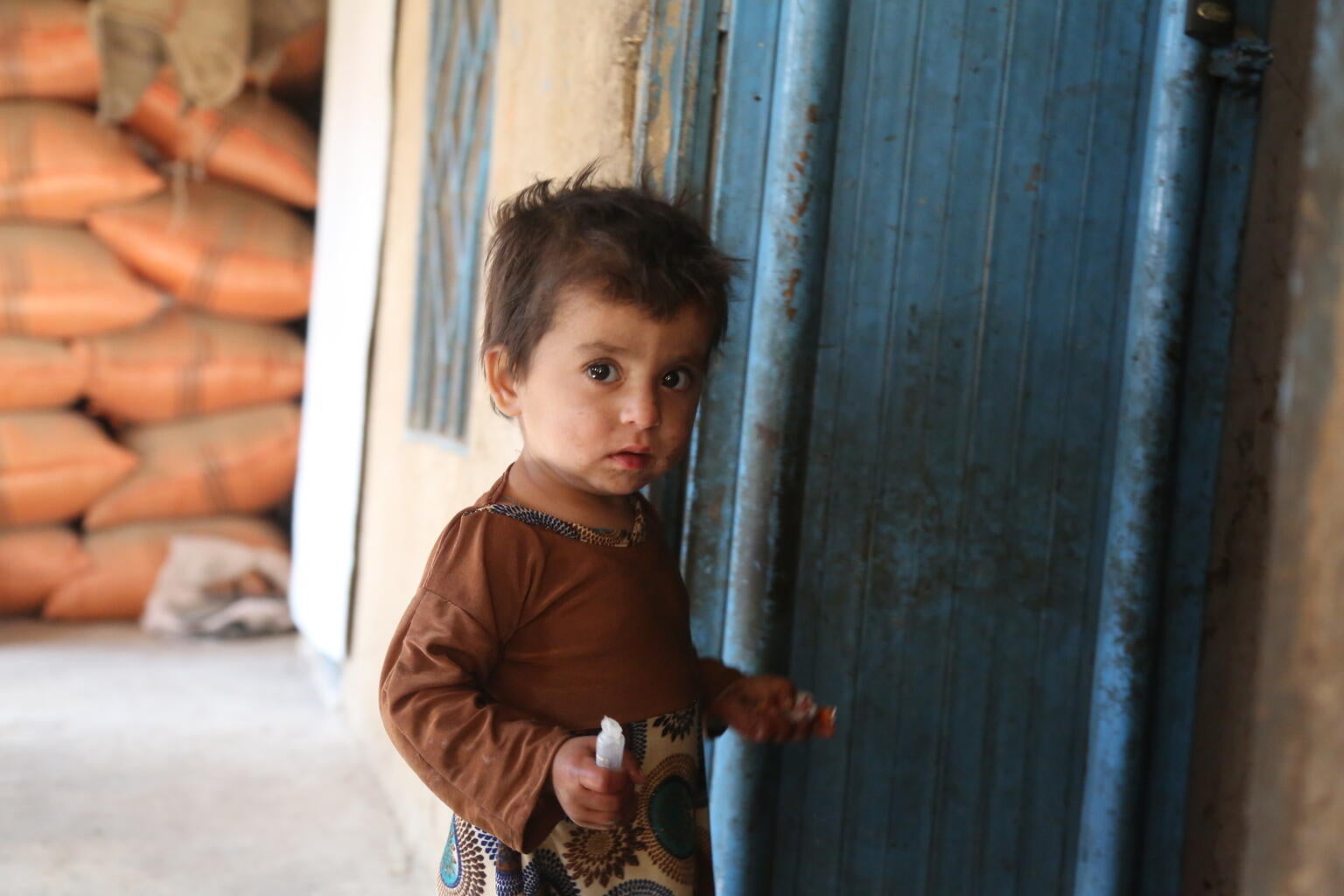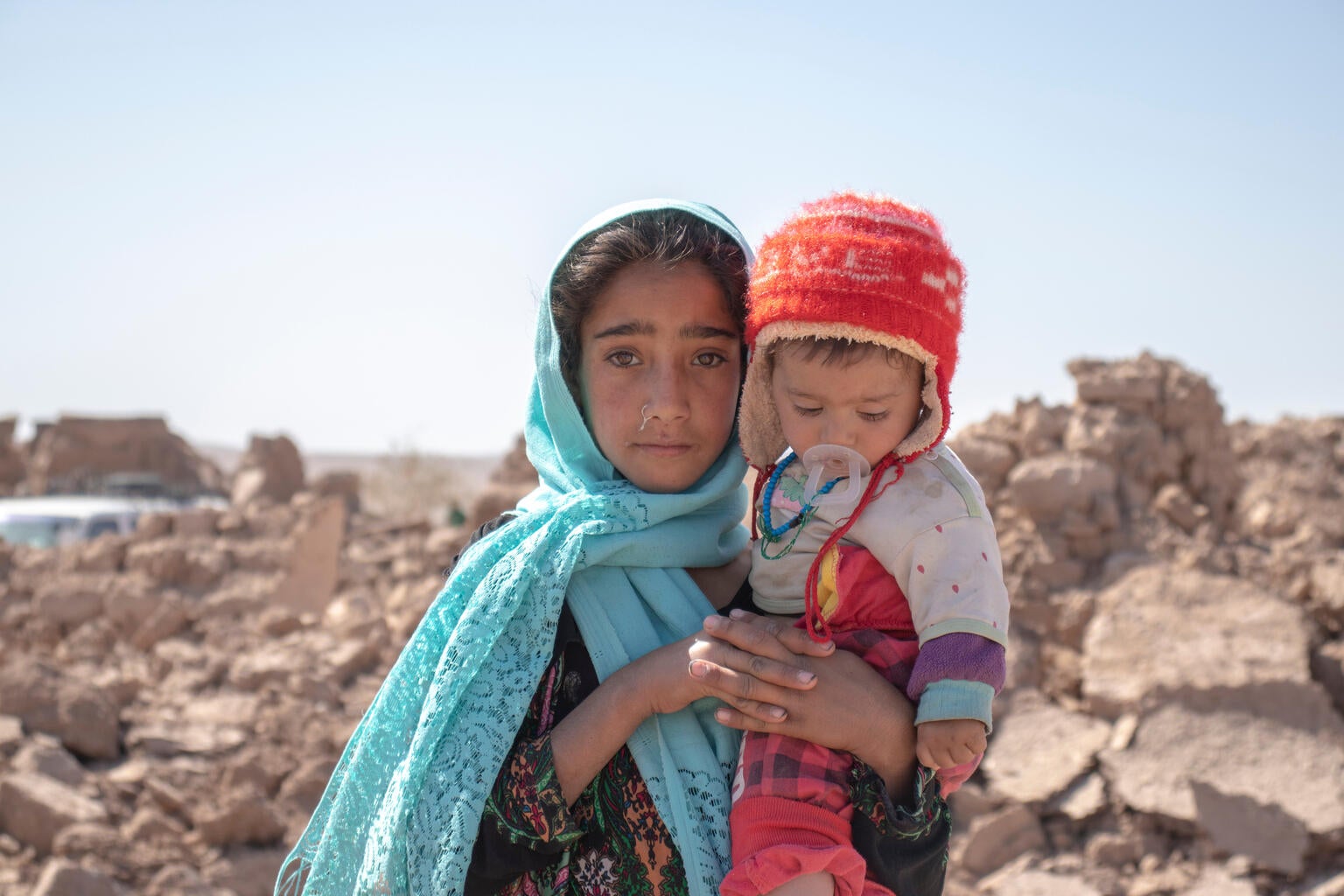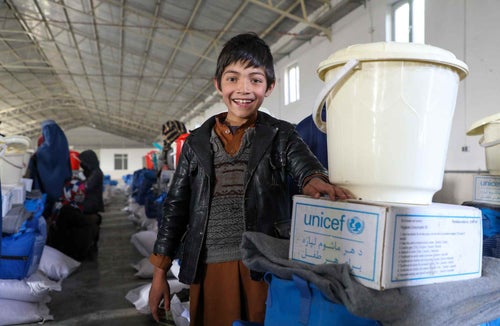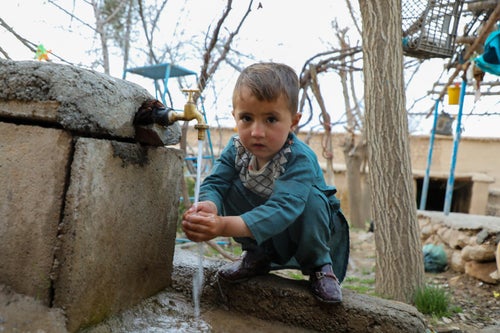Afghanistan is one of the most challenging places in the world to be a child. Ongoing conflict, extreme climate shocks, severe economic decline, and disease outbreaks are making life for children even harder.
Afghanistan's children face an uncertain future in a constantly changing and volatile situation. At least 12.6 million children need humanitarian assistance as families suffer extreme poverty in Afghanistan with limited access to healthcare, education, food and safe, clean water.
Girls are enduring a systematic crisis as women’s rights in Afghanistan are not being recognised. Their exclusion from secondary education and the workforce – and the imposition of rules governing their daily lives – has significantly increased their protection risks, devastated their rights to an education, and restricted their access to healthcare. The impacts will be felt for generations to come.
UNICEF has stood by the women and children of Afghanistan for more than 70 years throughout multiple crises, and as a humanitarian organisation, we will stay and deliver. We will engage, advocate and look for every opportunity to reach women and children who need us, no matter what.
Children in Afghanistan
UNICEF is on the ground supporting vulnerable children and their families. But we can't do this without you.
Education is every child's right
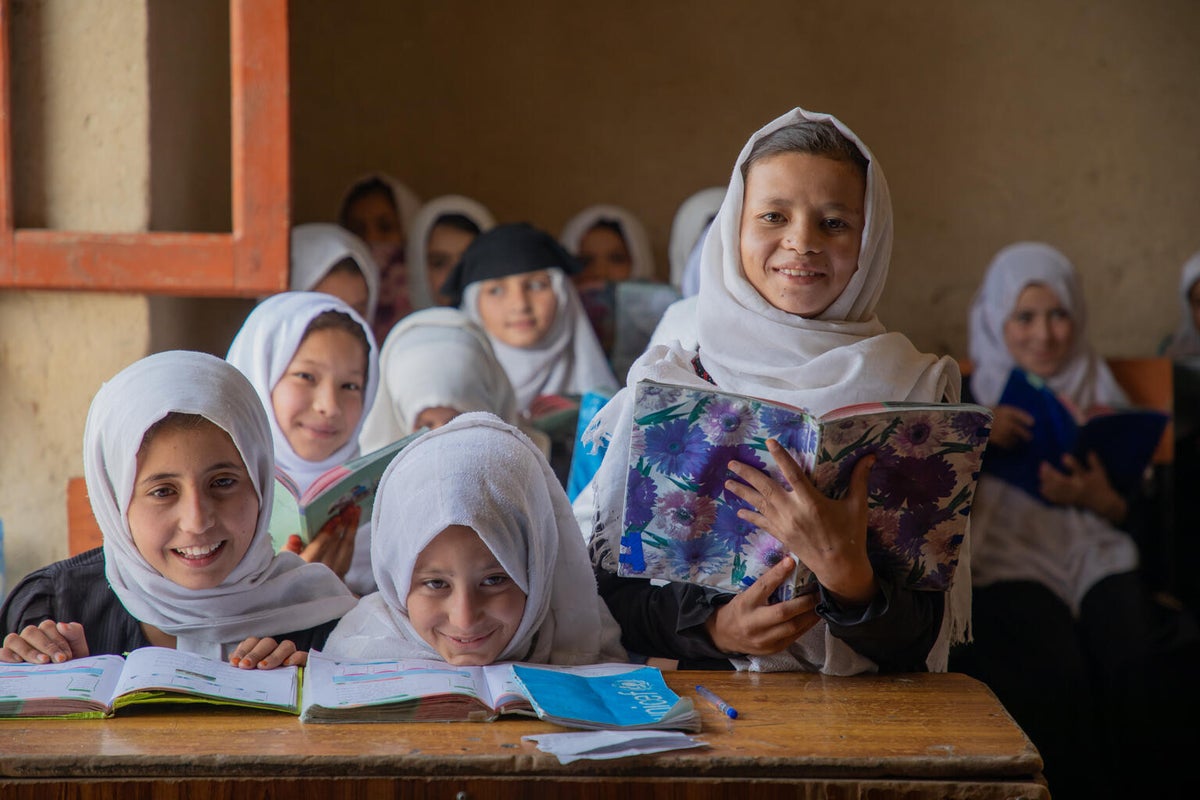
At school in Afghanistan, 11-year-old Zainab is reading her favourite subject, the Dari language (Afghan Persian). Zainab is an orphan who worked as a boot polisher in the city until a UNICEF-supported partner provided her with a safe space to learn and socialise.
Zainab was enrolled in multiple classes and receives psychosocial counselling after her classes and plays with other girls who used to work on the streets just like her.
"I am so pleased that my life has changed since I came to this centre. I had many problems in the past; I couldn't study because I was working, but now, I am able to go to school and to study, and I am so happy about it. My biggest dream is studying and going to the university when I grow up; I want to become an English teacher," explains Zainab.
Devastatingly, since the political transition in Afghanistan two years ago, girls like Zainab cannot continue their education once they turn 12 years old.
Families struggle to access healthcare
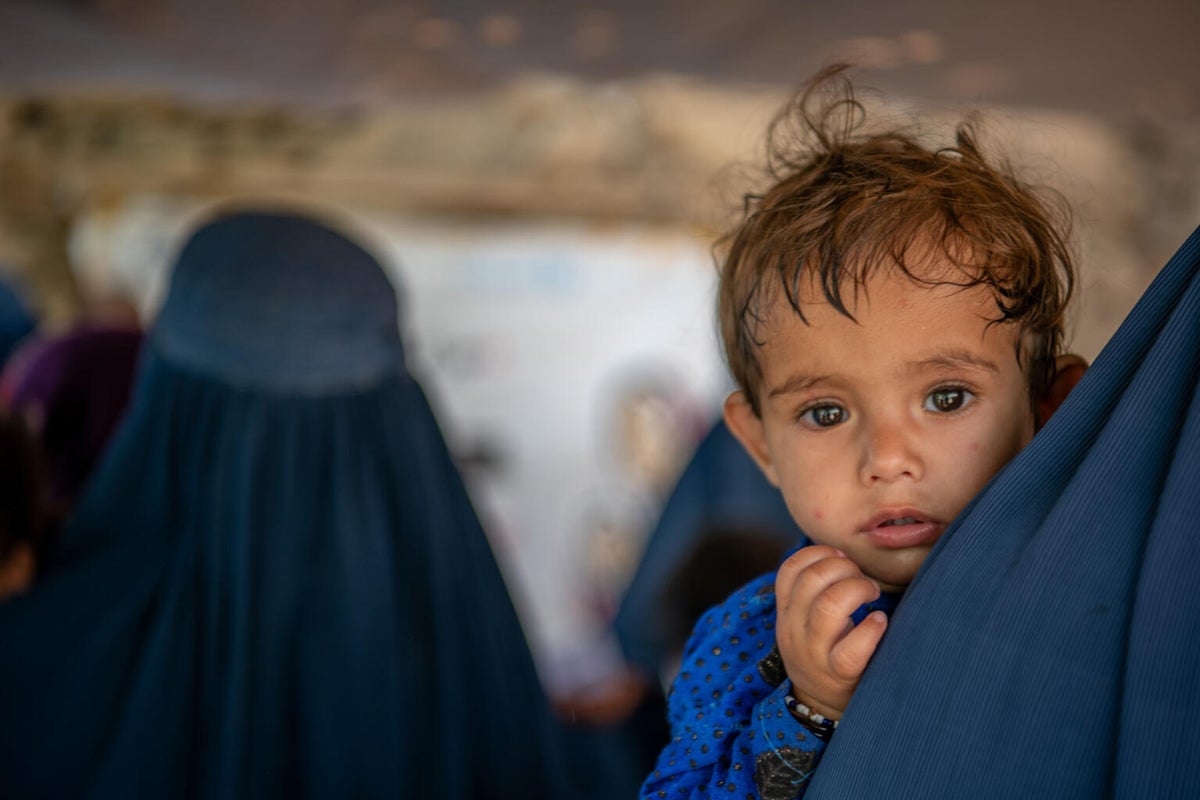
In Afghanistan, more than 17.9 million people, particularly those in hard-to-reach areas, have limited access to health care, which is mainly due to the lack of infrastructure. However, the lack of essential medicines, equipment and qualified health workers also contributes to children not being able to access the health care and nutrition support they need.
UNICEF works alongside our local partners to provide children in need with access to healthcare, lifesaving vaccines and nutrition, education, and safe, clean water and sanitation. When an emergency strikes, UNICEF provides immediate humanitarian support.
How will my donation help children?
Even in the face of the escalating crisis, UNICEF's work for children and families across every region of the country continues.
Here's how you can help:
- $92 could help provide eight winter blankets, protecting displaced children from the cold when temperatures plunge.
- $136 could help provide two hygiene and dignity kits, assisting two families in emergencies.
- $265 could help provide 504 sachets of Plumpy’Nut®, a therapeutic peanut paste, to help save the lives of four children suffering from severe malnutrition.

- 80¢on average, 80 cents to every dollar spent for the past three years went directly to helping children in need, including long-term programs, emergency response and community education.
- 20¢on average, 14 cents to every dollar spent for the past three years went to essential fundraising costs that helped us generate more impact for children, 6 cents went to admin costs, such as keeping your personal data safe.
How do we use each dollar donated?
Your gift will support children impacted by this emergency, and crisis around the world. If you choose to donate monthly or should we receive more funds than is needed for this emergency, your gift will support UNICEF's work where the need is greatest. Find out more about our financial management in our annual report.
Looking for other ways to support children in Afghanistan?
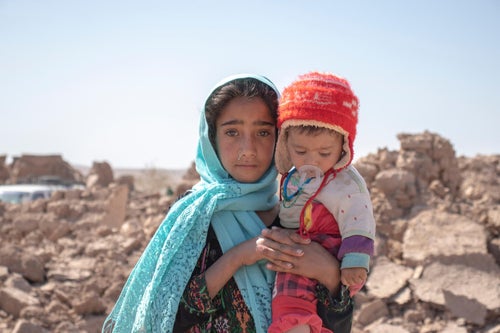
Children in Afghanistan
UNICEF will remain on the ground in Afghanistan supporting vulnerable children and their families. We can't do this without you.
Top image: Afghan children beside damaged houses after earthquakes devastated communities in October 2023. Photo credit: © UNICEF/UNI452496/Khayyam
Fundraising image: In 2022, a young boy smiles next to a UNICEF winterisation kit. The kit includes blankets, warm clothes, tarpaulin, and water buckets. Photo credit: © UNICEF/UN0581132/Fazel
Philanthropy image: In 2022, a four-year-old boy Afghanistan washes his hands at the new water tap installed by UNICEF.


